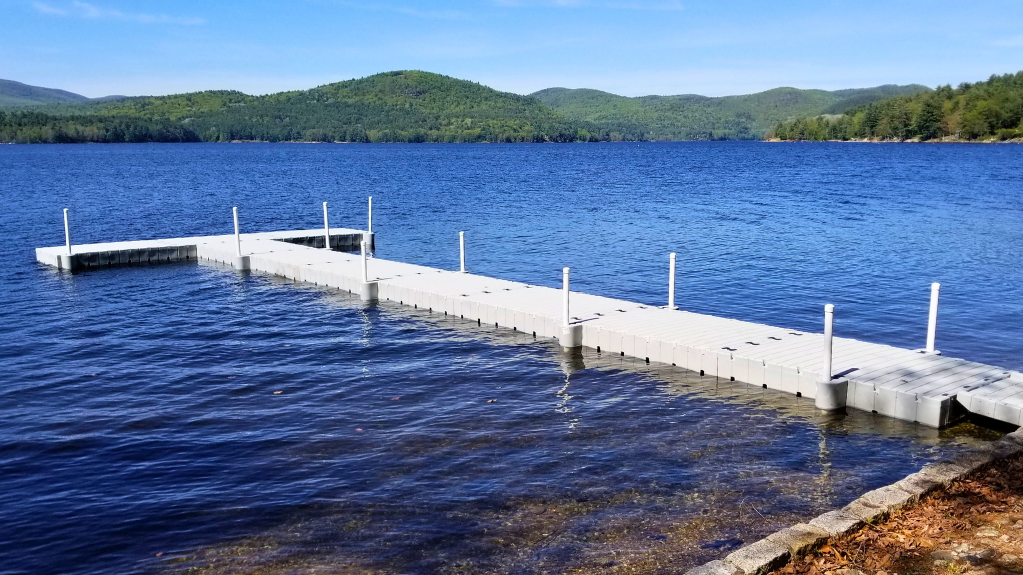Advantages of Collaborating With a Developed Floating Dock Company for Peace of Mind
Advantages of Collaborating With a Developed Floating Dock Company for Peace of Mind
Blog Article
Develop the Perfect Docking Solution With Floating Docks
Floating docks existing a flexible service for a selection of maritime requirements, adapting seamlessly to varying water degrees and diverse vessel kinds. As we check out the important aspects that contribute to the performance of floating docks, a number of crucial elements regarding security and maintenance will certainly emerge, raising concerns regarding how to maximize your docking experience.

Advantages of Floating Docks
Floating docks offer various advantages that make them an excellent selection for various maritime applications. One of the main benefits is their versatility to transforming water levels. Unlike dealt with docks, floating docks rise and loss with the tide, guaranteeing consistent availability for vessels. This attribute is particularly essential in locations susceptible to considerable tidal fluctuations or seasonal water degree changes.
Furthermore, floating docks are commonly less complicated and quicker to mount compared to traditional fixed frameworks. Their modular style permits uncomplicated assembly and disassembly, promoting upkeep and relocation when necessary. This flexibility is specifically valuable for momentary applications or in environments where conditions might alter.
Floating docks additionally tend to be more eco-friendly, as they lessen interruption to the seabed and bordering water communities. Their buoyant nature lowers the risk of damages to aquatic life, promoting a healthier atmosphere. Furthermore, these docks can be personalized to fit numerous vessel sizes, making sure that they satisfy specific functional needs - floating dock services.
Inevitably, the combination of versatility, simplicity of installation, and environmental factors to consider makes floating docks a highly effective option for a wide variety of maritime needs.
Choosing the Right Materials
Picking the suitable products for floating docks is critical to guarantee long life, sturdiness, and stability. The choice of materials straight impacts the dock's efficiency in different ecological problems, consisting of exposure to water, sunlight, and potential wear from marine traffic.
Typical materials made use of for floating docks consist of light weight aluminum, wood, and high-density polyethylene (HDPE) Light weight aluminum is lightweight, corrosion-resistant, and requires very little upkeep, making it a superb selection for longevity. Nonetheless, its preliminary expense can be greater contrasted to various other products.
Wood, while aesthetically appealing and giving a conventional look, can be susceptible to rot and pest damage otherwise correctly dealt with. Using pressure-treated wood or normally durable species like cedar or redwood can mitigate these concerns.
HDPE is a popular choice due to its resistance to UV rays and chemicals, in addition to being eco-friendly. dock company. It is available and lightweight in different shades, enabling customization
Ultimately, the appropriate product choice will depend on details requirements, consisting of budget, wanted appearances, and ecological considerations. Cautious examination of these aspects will certainly result in a resistant and effective floating dock remedy.
Design Considerations for Security
When making floating docks, making certain security is an essential aspect that can significantly affect their capability and safety and security. Security in floating dock design is influenced by various variables, consisting of buoyancy, weight circulation, and the setup of elements.
Weight circulation click for info is essential; evenly distributing tons throughout the dock prevents turning and boosts security. This can be achieved through tactical placement of docking devices, such as cleats and fenders, along with appropriate spacing of drifts. Furthermore, the measurements of the dock ought to be attentively prepared. Wider designs can supply increased stability, specifically in harsh water problems, while longer docks may require additional supports to stop sagging.
An additional essential consideration is the environmental influence, including wave action and wind. Integrating attributes such as sidewalls or skirting can assist reduce the results of ecological pressures, preserving security in negative conditions. Inevitably, a combination of thoughtful style, material choice, and understanding of environmental aspects will certainly produce a floating dock that meets both security and safety needs.
Installment Tips and Methods

Following, secure the required permits and adhere to neighborhood laws, which might determine setup techniques and environmental factors to consider. If required, engage a qualified contractor experienced in floating dock setups. Use premium products created for marine settings to improve sturdiness and longevity.
When placing the dock, align it parallel to the coastline to assist in simple access. Ensure that the anchoring system is robust, using concrete blocks or helical supports to support the dock against wind and wave action. It's vital to account for seasonal water degree changes, consisting of prospective ice movement in cooler climates.
Throughout the installment, ascertain the dock's floatation and stability prior to settling the anchoring. On a regular basis check the installation for any kind of signs of wear or damages. By complying with these methods and tips, you can attain a safe, functional, and cosmetically pleasing floating dock setup that meets your demands.
Upkeep and Care Standards
Caring and maintaining for floating docks is vital to lengthening their lifespan and guaranteeing secure use. Normal inspections must be performed to recognize any signs of wear, damage, or marine development. Search for splits, loose fittings, or stained areas on the dock's surface area, as these problems can endanger structural integrity.
Cleaning is vital. Utilize a stress washer to get rid of algae, barnacles, and particles, which can gather with time. For persistent development, consider eco-friendly cleaning agents that will not damage marine life.
In addition, examine the mooring lines and anchors regularly to guarantee they are safe and complimentary from corrosion. Change any kind of torn or damaged lines quickly to preserve stability.
During severe weather, such as storms or freezing conditions, take preventive procedures. Protect the dock with added mooring lines and, if viable, eliminate any kind of removable parts to stop damage.
Final Thought
To conclude, the application of floating docks offers a reliable and functional docking service suitable for various maritime applications. Their versatility to changing water levels, incorporated with a modular design, enables very easy personalization and relocation. Picking ideal products improves both sturdiness and visual allure, while mindful consideration of security guarantees safety and security and long life. With correct installation and normal maintenance, floating docks can give reliable and dependable docking experiences for a large range of vessels.
As we explore the necessary aspects that contribute to the efficiency of floating docks, a number of crucial factors regarding stability and upkeep will certainly arise, increasing questions regarding how to maximize your docking Get More Info experience. Unlike fixed docks, floating docks surge and fall with the tide, making certain consistent ease of access for vessels.When designing floating docks, making certain stability is an essential facet that can dramatically influence their capability and security. Stability in floating dock style is influenced by numerous aspects, consisting of buoyancy, weight circulation, and the arrangement of parts. Ultimately, a mix of thoughtful style, product selection, and understanding of ecological aspects will certainly generate a floating dock that fulfills both security and security needs.
Report this page